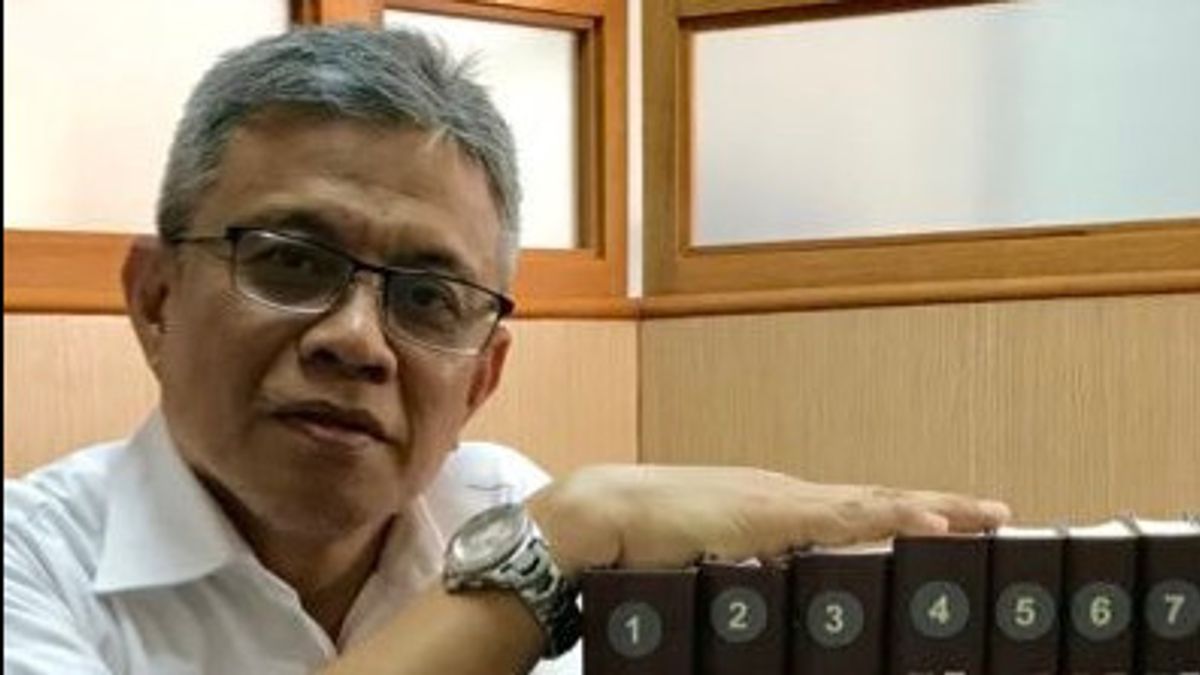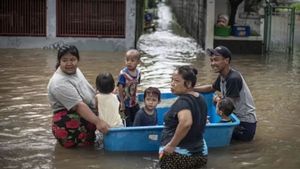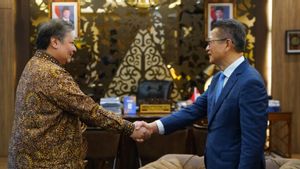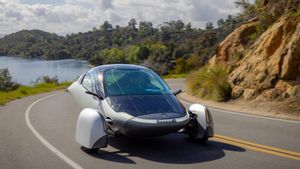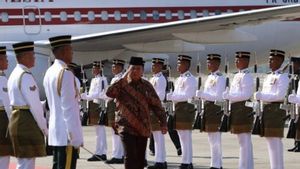JAKARTA - The government's discourse to loosen the Large-Scale Social Restrictions (PSBB) regulation by implementing new norms has drawn a lot of criticism. In fact, according to Institute for Development of Economics and Finance (Indef) senior economist Didik Rachbini, the golden days of Indonesia when it was still implementing the PSBB were simply passed by.
"This is because from the start the Indonesian government did not consider the COVID-19 problem as a serious problem," Didik said in a video conference with journalists, Tuesday, June 2.
Moreover, said Didik, the statements issued by the government at the beginning of the positive cases were found to tend to be uncertain. Thus, making people confused.
"My qualitative analysis of the golden time for two and a half months just passed. So the results were not maximal. Not maximum, it did not produce a strong target, the promise for the mass rapid test was not fulfilled. So there are many denials, many talk of discrepancies. The government apparatus made many blunders during the two months, "said Didik.
According to Didik, the government's poor public communication shows the government's unpreparedness to face problems. Thus, the policies taken have no impact.
"This is not messy, the public is adorned with a messy statement. If the communication is messy, the public policy has the potential to fail," he said.
Meanwhile, the Economist of Indef, Media Wahyudi Aksar, assessed that instead of improving the national economy, these efforts would actually make the economy collapse.
The government argues, the move was taken with the aim of getting people back to their activities and the wheels of the economy running. However, the media said, the fact is that the easing of the PSBB has actually increased positive cases of COVID-19 in Indonesia.
"Indeed, during relaxation there is an economic improvement. But when there is an increase in cases, the economy will collapse again. Indonesia is still at the stage of societal restrictions, there are still many cases and deaths that are quite high," he said.
According to the Media, the government should focus on suppressing the growth of COVID-19 rather than taking on a new normal. The decision to impose new norms or to open up economic activity can only happen if there is certainty about a reduction in positive numbers and deaths due to COVID-19.
On the other hand, he admitted, he was optimistic that Indonesia had a pretty good chance of recovering economically without the need to loosen restrictions hastily. One of them is by focusing on handling health first.
"Doing normal and opening the economy is not a shortcut, who wants to spend when cases are still increasing. Indonesia still has a chance for economic recovery as long as you don't rush it," he explained.
Furthermore, the media said, PSBB relaxation or the implementation of the new normal scenario only had a positive impact on the economy in the short term.
"Celebrating a new normal, meaning that this pandemic has been resolved and we can do more activities, not being forced into a new normal. Conducting policies that are not pro-vulnerable, not pro-farmers and more profitable for short-term entrepreneurs may be good enough, but in the next two years. there is economic imbalance, "he said.
Early PSBB PolicyPreviously, the government tried to reduce the rate of transmission of COVID-19 in the country through the PSBB policy. According to President Joko Widodo (Jokowi), this policy is deemed appropriate to the conditions in Indonesia.
According to him, this policy was made after the government studied other countries' steps to deal with the virus. This policy also adapts to the condition of the Indonesian state in terms of geography, demography, cultural character, discipline and fiscal capacity.
With the PSBB policy in accordance with Law Number 6 of 2018 concerning Regional Quarantine, Jokowi emphasized that regional heads do not take different policies from the central government.
The former Governor of DKI Jakarta understands the desire of regional heads to prevent the spread of COVID-19 in his area. Therefore, he taught that there were transportation restrictions and social restrictions imposed by a number of regions. However, he asked the regional government to follow the central government's policy by not implementing a regional quarantine or lockdown policy.
"If there is a Law on Health Quarantine, yes, that is what is used. Do not make separate events so that the government does not share the same vision line," he said some time ago.
He explained that the central government did not take a lockdown or regional quarantine policy because it wanted economic activities in the community to continue, even though it had to maintain a safe distance from one another or physical distancing.
Meanwhile, Jokowi continued, the lockdown policy or area quarantine meant a complete stop all community activities and a cessation of private and public transportation facilities.
"We still want economic activity to exist, but all people must maintain a distance. Maintain a safe distance is the most important. We convey from the beginning, social distancing, physical distancing, that is most important," he said.
Meanwhile, the Coordinating Minister for Political, Legal and Security Affairs (Menko Polhukam) Mahfud MD assessed that the PSBB policy had accommodated input from the public asking for regional quarantine to stop the spread of the virus and make the areas free to move.
The English, Chinese, Japanese, Arabic, and French versions are automatically generated by the AI. So there may still be inaccuracies in translating, please always see Indonesian as our main language. (system supported by DigitalSiber.id)
